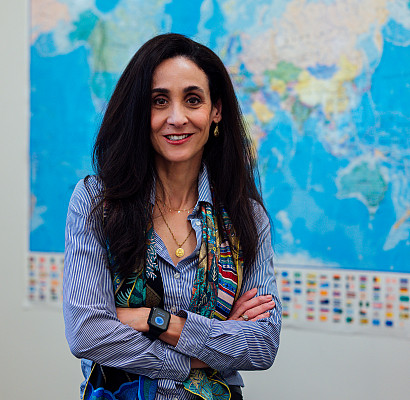
Advancing Study Abroad at Ursinus: Álvarez Awarded Fulbright U.S. Education Administrators Award
Director of International Programs Paula Álvarez Tamés was recently awarded the prestigious Fulbright U.S. International Education Administrators Award. In March, she will embark on a two-week seminar in Taiwan to establish partnerships with higher education institutions abroad.
When you walk into Paula Álvarez Tamés’s office in Olin 104, it’s easy to get lost in the international keepsakes that dot the walls and shelves. Having been at Ursinus College for 25 years, the director of international programs has worked with hundreds of students from across the world.
“My office is like my grandmother’s house because I have little things from my students everywhere,” Álvarez said. “It’s a bit overwhelming, but I don’t have the heart to put them away because these items are a constant reminder of the incredible people, I’ve had the privilege of working with.”
This spring, Álvarez is preparing to embark on her own international journey to help further develop Ursinus’ blossoming study abroad programs.
Álvarez was recently awarded the prestigious Fulbright U.S. International Education Administrators Award. The award is a highly selective and fully funded opportunity for U.S. higher education administrators to participate in an intensive two-week seminar abroad to learn about other countries’ higher-education systems. Only a small group of administrators are selected for this honor each year, making it a significant milestone for Álvarez’s professional development and recognition within international education. In March, Álvarez will travel to Taiwan with a group of administrators.
“This is an incredible milestone for my professional development and recognition within international education,” Álvarez said. “I would say that it’s a fantastic opportunity for Ursinus to shine and establish itself as a forward-thinking institution that´s creating opportunities that other colleges may not have.”
The primary goal of the trip is to establish new partnerships with higher education institutions in Taiwan, paving the way for future faculty collaborations, research opportunities, faculty-led programs, and student exchange programs. Taiwan’s primary language is Mandarin, offering Ursinus students studying the language an immersive, real-world opportunity to practice their skills. The countries’ strategic location also puts it at the center of trade, technology, and diplomacy, giving students a front row seat to the economic and cultural exchanges that shape that region.
“I like to think of this initiative as similar to an Admissions event in the sense that we want to have a personal interaction with potential partners to see how we can do things together,” Álvarez said. “Post COVID, we have been fostering a lot of online collaborations, which are fantastic, but they can never replace in-person collaboration.”
Álvarez’s upcoming experience is just another step in advancing international education and study abroad at Ursinus. Since Álvarez has been director, she has been awarded grants such as the Passport Grant, which helped students with high financial aid get passports for free.
In June of 2023, she was awarded a grant from the U.S. Department of State’s Increase Diversify Education Abroad for U.S. Students (IDEAS) Program. That grant helped her create two more faculty-led study abroad programs: one in South Korea which took place in May and June of 2024, and another in Mexico, during the most recent winter break. For her, the study abroad experience is not just about what you do, but what you gain from it.
“Everyone always smiles and says they had a great time while abroad, but I think most people struggle articulating what they gained,” Álvarez said.
The National Association of Colleges and Employers (NACE) lays out eight core competencies that are the core foundation for career readiness. In Álvarez’s eyes, a study abroad experience checks all those boxes.
“When a student meets someone abroad, they gain intercultural communication skills. When they take a different class at a foreign school, they show they are willing to challenge themselves, adapt, and be flexible,” Álvarez said. “These are all things employers look for and are established while studying abroad.”
Álvarez emphasizes the impact that a study abroad experience can have on a student not just during college, but throughout their lifetime.
“Many times, students don’t want to study abroad because of “FOMO”, fear of missing out,” Álvarez said. “I encourage them to embrace the concept of “JOMO”, the joy of missing out and experiencing something different, and that’s truly invaluable.”
